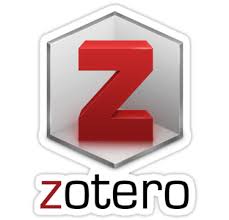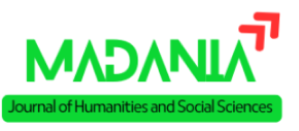The Role of School Leadership in the Success of Literacy Programs
DOI:
https://doi.org/10.59240/kjsk.v5i1.193Keywords:
Leadership, Literacy Culture, PrincipalAbstract
In an effort to foster a reading culture, the Indonesian government has launched various initiatives to improve literacy, particularly among the younger generation. Schools, as formal educational institutions, play a strategic role in shaping students' intellectual and moral development. In this context, school principals hold a central role as leaders—not only in promoting literacy culture but also in instilling Islamic values such as honesty, responsibility, and the pursuit of knowledge as a form of worship. This study aims to examine the role of school leadership in enhancing the literacy culture at SMP Negeri 21 Batang Hari. A descriptive qualitative method was used, with data collected through interviews, observations, and documentation involving principals, teachers, the head librarian, and students. Data were analyzed through data reduction, data display, and conclusion drawing. The findings indicate that the principal plays a key role in mobilizing, guiding, motivating, and setting an example in fostering literacy at school. Islamic values are integrated into activities such as reading as a form of reflection (tadabbur), building unity (ukhuwah) through shared reading sessions, and modeling appropriate reading manners (adab). The study concludes that effective, inspirational leadership rooted in Islamic values is essential in creating a school environment that holistically and meaningfully supports the development of a literacy culture.
References
Agustina, Lia, and Umi Anis Ro’isatin. “The Efficacy of Case-Based Learning Model Integrated with Critical Thinking Skills to Improve EFL Learners’ Reading Comprehension.” J. Lang. Lang. Teach 12, no. 3 (2024): 1443–54.
Al-Nahdi, Yousef Ali Ahmed Saleh, and YAJUAN LI. “Educational Values in Islam and Confucianism: A Comparative Analysis.” Arts for Linguistic & Literary Studies 7, no. 1 (2025): 640–73.
Amzah, M, Lailatul Husna, and Miftahurrahmah Miftahurrahmah. “Peran Kepemimpinan Kepala Sekolah Dalam Menerapkan Nilai Dan Perilaku Islami Terhadap Loyalitas Guru Di KB Kapalo Koto Padang Pariaman.” Al-Marsus: Jurnal Manajemen Pendidikan Islam 2, no. 1 (2024): 75–88.
Anas, NASIRU, and KAMILU Ishaq. “Qualitative Research Method in Social and Behavioural Science Research.” International Journal of Management, Social Sciences, Peace and Conflict Studies 5, no. 1 (2022): 89–93.
Bartlett, Tara, and Daniel Schugurensky. “Reinventing Freire in the 21 St Century : Citizenship Education , Student Voice and School Participatory Budgeting” 23, no. 2 (2021): 55–79.
Borg, Claudine. “Qualitative Naturalistic Research,” 2024.
Cloudesley, Simon Paul. “‘Informed’,‘Active’and ‘Engaged’? Understanding and Enacting Information Literacy from a UK Citizenship Perspective.” Journal of Information Literacy 15, no. 3 (2021).
Herijanto, Hendy. “Al Amanah in Al Qur’an vs Trust: A Comparative Study.” International Journal of Ethics and Systems 38, no. 4 (2022): 549–75.
Husna, Faiqatul. “Kepemimpinan Islami Dalam Meningkatkan Mutu Lembaga Pendidikan Islam.” MISYKAT: Jurnal Ilmu-Ilmu Al-Quran Hadits Syari’ah Dan Tarbiyah 2, no. 2 (2017): 131–54.
Jannah, Miftahul, Siti Masfuah, and Much Arsyad Fardani. “Gerakan Literasi Sekolah Meningkatkan Minat Baca Siswa Sekolah Dasar.” Jurnal Prasasti Ilmu 2, no. 3 (2022): 115–20.
Kranich, Nancy. “Civic Literacy: Reimagining a Role for Libraries.” The Library Quarterly 94, no. 1 (2024): 4–34.
Leithwood, Kenneth. “A Review of Evidence about Equitable School Leadership.” Education Sciences 11, no. 8 (2021): 377.
———. “Education Sciences A Review of Evidence about Equitable School Leadership.” Educational Science 11, no. 137 (2021): 1–49.
Leithwood, Kenneth, Doris Jantzi, and Rosanne Steinbach. “Leadership and Other Conditions Which Foster Organizational Learning in Schools.” In Organizational Learning in Schools, 67–90. Taylor & Francis, 2021.
Lim, Weng Marc. “What Is Qualitative Research? An Overview and Guidelines.” Australasian Marketing Journal 33, no. 2 (2025): 199–229.
Maki, Peggy L. Assessing for Learning: Building a Sustainable Commitment across the Institution. Routledge, 2023.
Maspul, Kurniawan Arif. “Integration of Reading and New Literacies with Islamic Education.” Jurnal Penelitian Ilmu Ushuluddin 4, no. 1 (2024): 1–17.
Maulana, Nurul Iman. “The Principles Of Prophet’s Leadership In Organizational Management.” International Journal of Sharia Business Management 3, no. 1 (2024): 24–29.
Mobonggi, Arten, Meyke Alie, Fatimah Djafar, and Febrianto Hakeu. Kepemimpinan Dalam Manajemen Pendidikan Kekinian. MEGA PRESS NUSANTARA, 2024.
Mustajab, Chuen Lee, and Jansee. “Principal Leadership as a Quality Culture Motivator.” At-Tasyrih Jurnal Pendidikan Dan Hukum Islam 7, no. June 2021 (2023): 38–50.
Mustofa, Ali. “Metode Keteladanan Perspektif Pendidikan Islam.” CENDEKIA: Jurnal Studi Keislaman 5, no. 1 (2019): 23–42.
Muzari, Tapiwa, Goerge Nevers Shava, and Samantha Shonhiwa. “Qualitative Research Paradigm, a Key Research Design for Educational Researchers, Processes and Procedures: A Theoretical Overview.” Indiana Journal of Humanities and Social Sciences 3, no. 1 (2022): 14–20.
Nasrullah, Riki, Kisyani Laksono, Arditya Prayogi, Parmin, and Fafi Inayatillah. “Establishing Literacy Foundations : Policies and Interventions for Indonesia’s Future Excellence.” Jurnal Kependidikan 10, no. 3 (2024): 1219–30.
Ozor, Augustine, and James Toner. “Information Literacy Behavior and Practice: An Assessment of Undergraduate Students at Ada College of Education, Ghana.” Journal of Library Administration 62, no. 1 (2022): 132–51.
Pilo, Aliesa Sadaus. “Strategies for Effective School Principal Leadership and Management Practices in Integrated Muslim Schools.” North-West University (South Africa)., 2023.
Pratiwi, Sri Nurabdiah, Indra Prasetia, and Nurhamidah Gajah. “Literacy Culture in Elementary Schools: The Impact of the Literacy Movement Program and Library Facilities.” Jurnal Kependidikan: Jurnal Hasil Penelitian Dan Kajian Kepustakaan Di Bidang Pendidikan, Pengajaran Dan Pembelajaran 8, no. 3 (2022): 786–94.
Pratolo, Bambang Widi, and Hana Amri Solikhati. “Investigating Teachers’ Attitude toward Digital Literacy in EFL Classroom.” Journal of Education and Learning (EduLearn) 15, no. 1 (2021): 97–103.
Rahman, Gohar. “Transforming Islamic Education Through Value-Based Leadership: A Narrative Review.” Sinergi International Journal of Islamic Studies 3, no. 2 (2025): 83–95.
Rakhmawati, Yeni, and Ali Mustadi. “The Circumstances of Literacy Numeracy Skill: Between Notion and Fact from Elementary School Students.” Jurnal Prima Edukasia 10, no. 1 (2022): 9–18.
Soest, Heleen L Van, Michel G J den Elzen, and Detlef P van Vuuren. “Net-Zero Emission Targets for Major Emitting Countries Consistent with the Paris Agreement.” Nature Communications 12, no. 1 (2021): 2140.
Sutherland, Abigail, and Sara Incera. “Critical Reading: What Do Faculty Think Students Should Do?” Journal of College Reading and Learning 51, no. 4 (2021): 267–90.
Syafi’i, Ahmad Helwani, and Lc M Pd. “Interaksi Marusia Dan Kebudayaan.” Mosaik Peradaban: Interaksi Manusia Dan Kebudayaan 28 (2025).
Weyant, Emily. “Research Design: Qualitative, Quantitative, and Mixed Methods Approaches: By John W. Creswell and J. David Creswell, Los Angeles, CA: SAGE, 2018, $38.34, 304pp., ISBN: 978-1506386706.” Taylor & Francis, 2022.
Wijaya, Muhammad Hengky, Abu Khoir, and Abdul Wahid Zaini. “Fostering Public Trust : The Transformative Leadership of School Principals.” Indonesian Journal of Education and Social Studies 01, no. 01 (2022): 51–62.
Yousef, Wael, Ghadah Al Murshidi, Asrori Asrori, Muhammad Fazlurrahman Hadi, Miftachul Huda, and Terence Lovat. “The Development of Islamic Education Curriculum from the Quranic Perspective.” Ar-Fachruddin: Journal of Islamic Education 1, no. 2 (2024): 93–123.
Downloads
Published
How to Cite
Issue
Section
License
Copyright (c) 2025 Lina Suryati, Urip Sulistiyo, Sofyan, Mirnawati

This work is licensed under a Creative Commons Attribution-NonCommercial-ShareAlike 4.0 International License.






